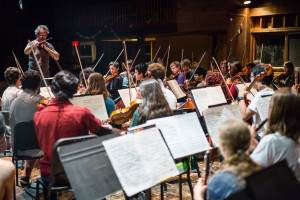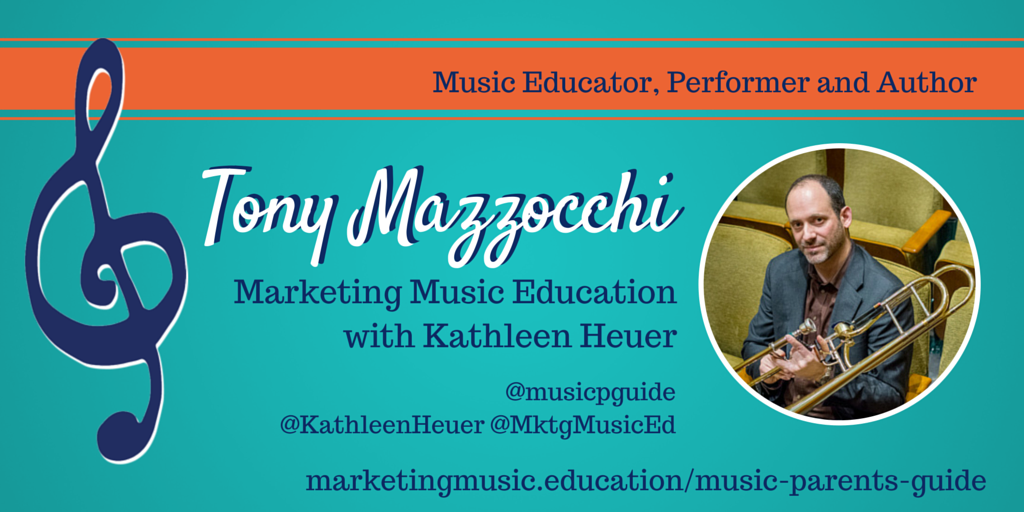 While it is true that I spend most of my time writing about how important it is to begin (and then continue) musical instrument instruction in school from a young age, it is also true that children can still experience the incredible benefits of music education at any time during their K-12 school years. As of today, school systems do not have enough structures in place to accommodate students who wish to begin instrumental music instruction when they are in upper grades.
While it is true that I spend most of my time writing about how important it is to begin (and then continue) musical instrument instruction in school from a young age, it is also true that children can still experience the incredible benefits of music education at any time during their K-12 school years. As of today, school systems do not have enough structures in place to accommodate students who wish to begin instrumental music instruction when they are in upper grades.
Whether a child wants to begin playing an instrument in high school from scratch, or they played at a young age and quit but want to get back into it, it’s possible as long as the school schedule and culture allow for it.
Students should not feel as if they need to get private lessons in order to experience instrumental music in school if they did not start an instrument at a young age. Not only should students feel comfortable with starting an instrument in their later K-12 years, schools would be wise to create opportunities for this to happen. Too many school music programs are “runaway trains” by high school, meaning that there are a set number of ensembles filled with students who are playing at an advanced level with little capacity to accommodate beginners. More beginner ensembles, classes, or independent study opportunities in middle school or high school is one solution that can allow for new students to successfully enter these programs.
In New York City schools, most band and orchestra programs begin in 9th grade due to the “de-zoned” nature of the city. Most students have never played an instrument by high school age, yet there are some who have depending on the middle school they attended. It is very possible for students to start an instrument in high school and become proficient enough to audition for music education or performance-based colleges — but that’s barely the point. All students are capable of reaping the wonderful benefits music education has to offer, even if they begin at a later age. Therefore, it’s crucial that all schools offer students the chance to explore instrumental music at any age in a healthy, nurturing environment.
Here are a few things parents and educators can do to ensure that students feel comfortable beginning music instruction at any age in school:
Teachers and parents should instill a “growth mindset” in students. Too often, parents and students believe that if they did not start an instrument “on time” that it is too late to begin. The student also may not have begun at a younger age because they a) didn’t have the opportunity or b) they though they were not “musically talented”. This is a perfect time to reinforce the concept that if students are motivated to persist at figuring things out, they will grow and become good musicians in a very short period of time; catching up — or even surpassing — the level of other students who have been playing for some time.
Schools should offer beginning instruction in every grade. Too many schools have programs that are built so that if students start past the first or second year of offered instruction (very often 4th -6th grades), they have “missed the boat” and can’t join the ensembles later. While many directors are very accommodating with students who want to start at different ages, there are a few problems:
- the students or parents have to seek out the opportunity to join the music program, and therefore must be brave; “quiet” kids and students without much parent involvement tend to lose out on the opportunity.
- the student does not have a comfortable enough environment in which to learn. If they are incorporated into the ensemble immediately, they may feel inadequate and far behind, and therefore might quit prematurely.
One solution is to create an elective that is for beginner musicians. If this elective is difficult to create from scratch, one “general music” course can morph into a beginning instrumental period. General music (or music appreciation) classes at the middle and high school levels are often (not always) redundant, considering most students have received this instruction in elementary school. Additionally, it is very possible (and often preferable) to teach music through performance in band, orchestra, or chorus.
Schools can offer music as independent study and utilize advanced students as “music mentors”. Music teachers have students in their rooms all day long, whether they have an official class or not. Students choose to eat lunch in the band/orchestra room and show up whenever the opportunity arises. Music teachers are the most accommodating professionals in this regard, so it is a great chance to incorporate a “peer mentoring” program. Advanced students can give lessons to students who want to begin an instrument; the lessons can occur during an ensemble, lunch, or elective period. High schools and middle schools can, and should, offer this as an elective or independent study for students. Offering a beginner band/orchestra in 9th grade gives hundreds of students the opportunity to “reboot” their interest in instrumental music. Several of these beginner students will inevitably attain a level that will enable them to be absorbed into the other school ensembles after a year or two.
Schools can ditch one day of test prep and offer music instead. The students who get hurt the most from standardized testing are the “at-risk” students from low-income households. School administrators have decided that these students need extra test prep during the day in order for the school report card to look good instead of offering these students an opportunity for true human growth. Many times these students get “pulled” from art and music classes for this academic “intervention”. It is undeniable that music instruction provides amazing benefits to the brain, health and well-being of children that are too long to list here. What if school leaders chose to “pull out” students from class for arts instruction one day a week instead of test prep?
Neuroscientists and music teachers alike say it’s never too late to start learning an instrument. For those who are willing to practice a little and commit to starting, there are real payoffs. Schools should creatively schedule their music programs to allow for beginners of all ages to join their programs, and parents should be proactive in lobbying school leaders to create these important opportunities for the future generation of innovators in our world.








My gears are turning already with this idea. I LOVE it. And in a small rural district this is easy. Why not have the Fourth Grade Band simply named “beginning band” and any and all beginners are welcome? High schoolers can schedule lessons through their band director while coming to the elementary band director for rehearsals. At first there may be some resistance to the idea but eventually the first band wouldn’t be thought of as purely fourth graders and we would grow accustomed to seeing seniors, 8th graders, 4th graders, etc. mixed together on the stage. Then this would travel upwards so that the 5th and 6th grade band would be 2nd and 3rd year players. Of course, students could be advanced to a higher band as soon as they are ready. The band program would be fuller, more exciting and much richer in this scenario. Thank you for your innovative ideas and inspiration.
I really like your point about how a student shouldn’t feel like they have to get private lessons in order to participate and play a musical instrument. Providing music or band workshops in schools seem pretty important and helpful. My daughter is too young to attend school or learn to play an instrument. I hope she gets the chance to try playing something when she gets older.